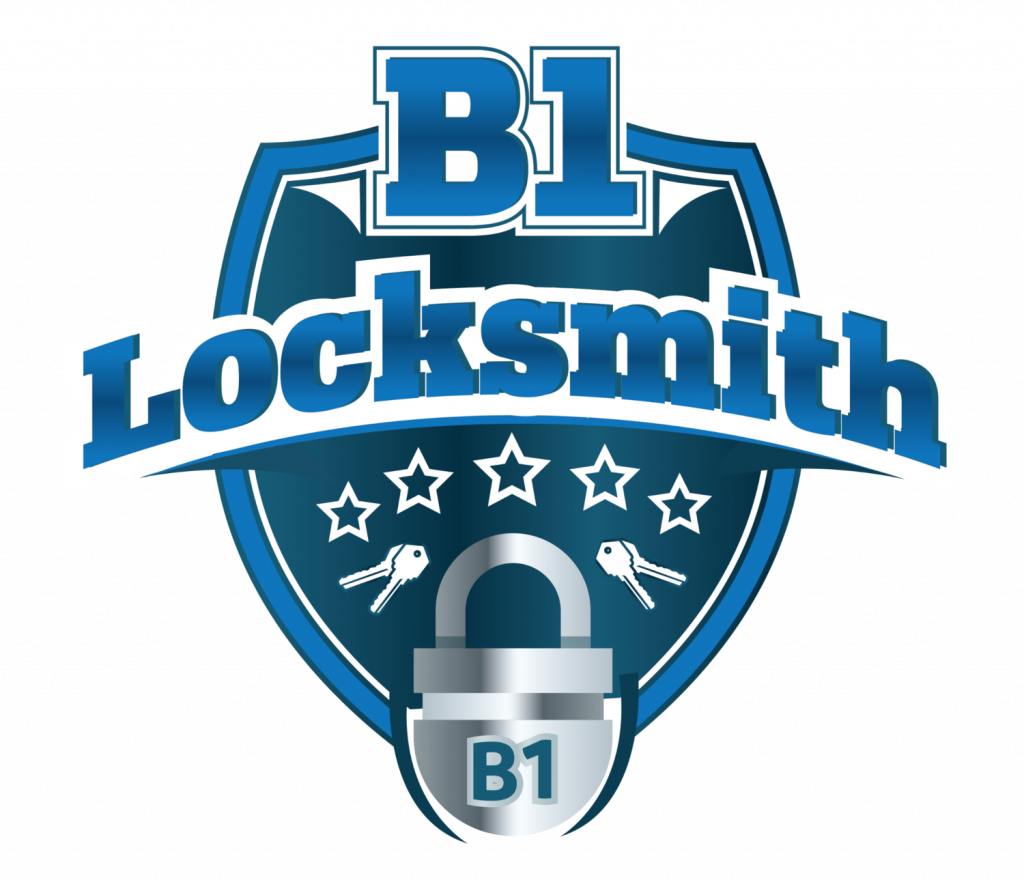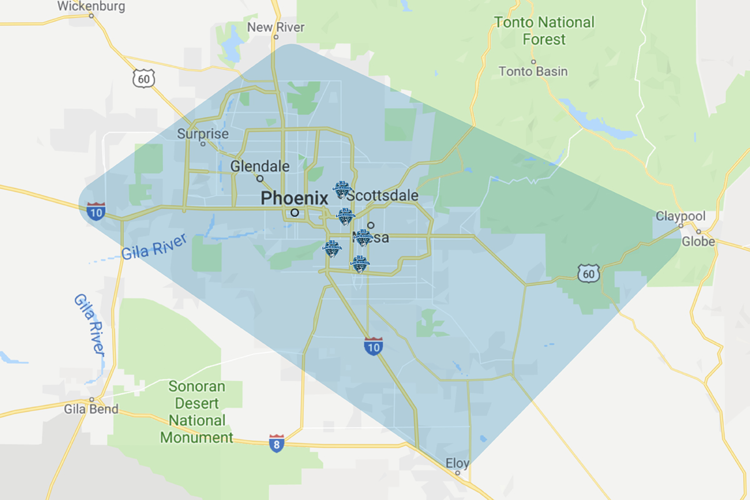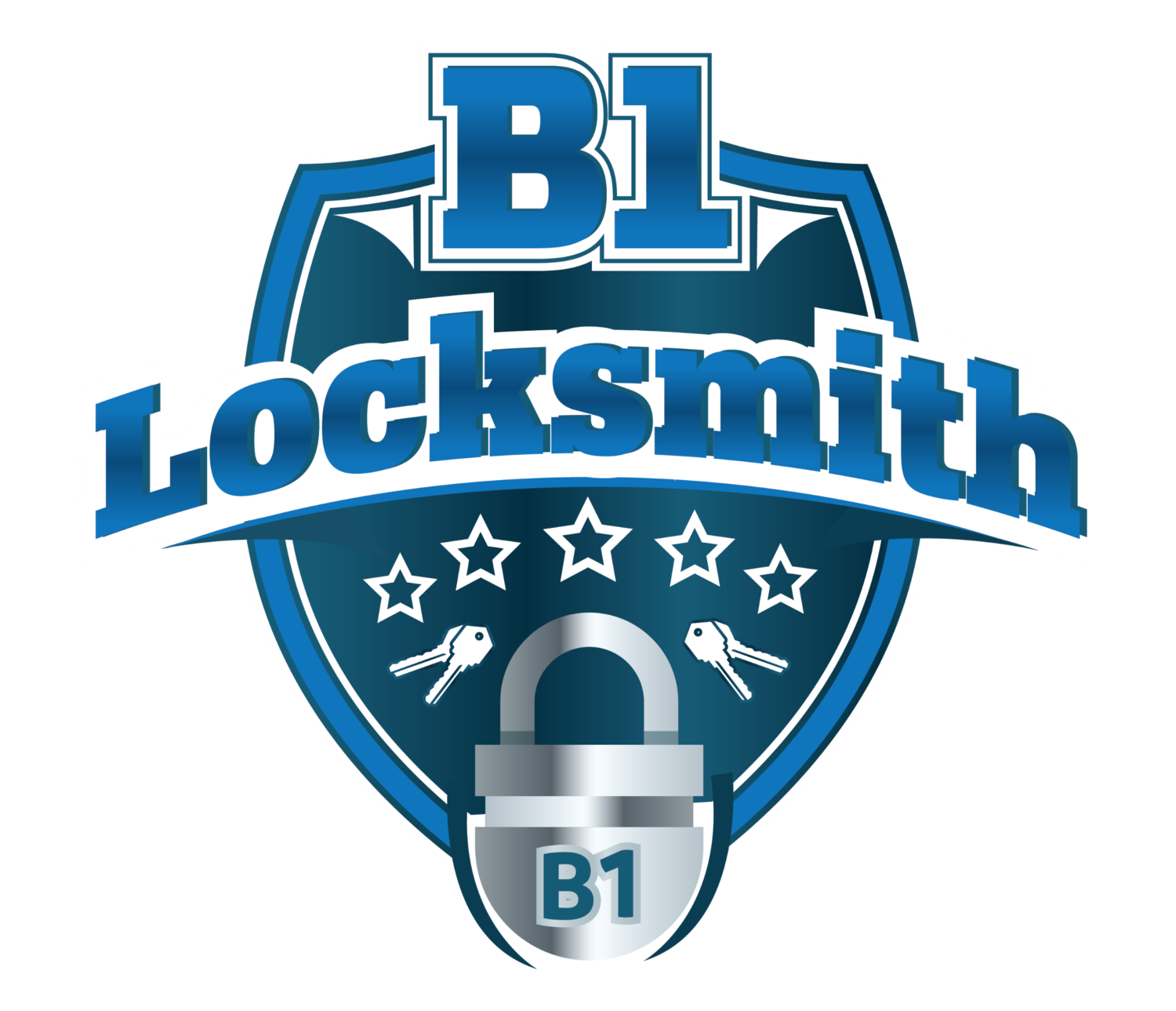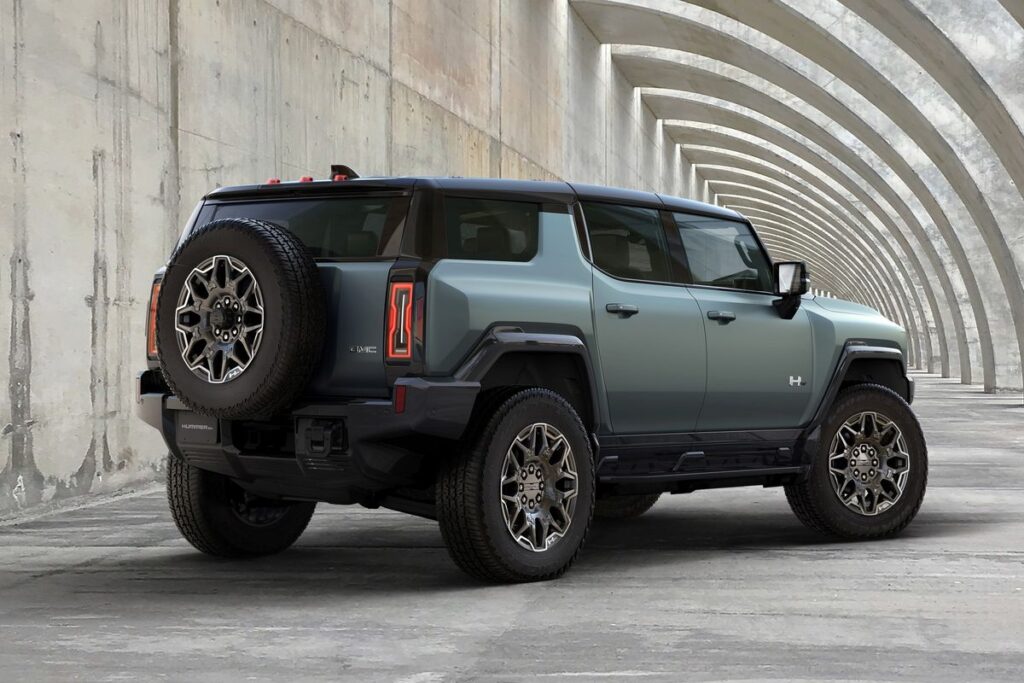
Locked out? Change locks? Lost car keys? We can help 24/7 Emergency Locksmith
Need a car Hummer Car Key Replacement in Tempe? Our Tempe Auto Locksmith Makes New Car Keys and Unlocks Your Vehicle. Find replacement keyless remote controls and car keys by your Hummer model. Programming instructions and tech support included with purchases.
Looking for a professional ignition switch replacement service in Tempe? Secure Locks emergency locksmiths are available 24/7. Give us a call!
Services for Hummer Models:Hummer h1 Hummer h2 Hummer h2 sut Hummer h3 Hummer pick up
Locksmith Services for Hummer Hummer cars lock out Hummer trunks lock out Hummer pickups lock out Hummer lost keys replacement Hummer chip keys cut Hummer chip keys programmed (Transponder keys) Hummer chip keys duplicate Hummer ignition install Hummer ignition repaired Hummer ignition rekey Hummer replace keyless entry remotes Hummer repair broken or worn out keys Hummer broken keys extracted Hummer high security keys cut Hummer high security keys program
Has your Hummer car key got stolen? Do you need a duplicate Hummer high security key? Are you looking for an expert locksmith to help you with Hummer ignition repair?
Contact B1 Locksmith for all types of Hummer locksmith requirements. We provide locksmith solutions for a variety of Hummer vehicles at affordable rates.
All our automotive locksmith solutions, such as ignition installation for a Hummer or duplicating a Hummer chip key, come with a 90 day guarantee.
If you have locked yourself out of your Hummer, we can quickly rekey your Hummer car doors and help you get back in your car. Similarly, if your Hummer ignition has worn out, our locksmith experts will quickly perform Hummer ignition repair and start your vehicle for you.
Contact a Locksmith
Hiring an automotive locksmith will provide you with professional services at a mid-range price. The work will be done properly. Normally a locksmith can cut and program a key for about 50% less than a dealership will charge.
A locksmith will come to you. With 24-hour emergency service, you do not have to wait until a dealership is open. Most dealerships will require you to come to their location, they do not offer on-site service.
In addition to car key replacement, a locksmith can help you if your key becomes stuck in the ignition, or if the car ignition is worn. A locksmith is a key replacement specialist.
Parts of a Car Key
When talking with a locksmith about a broken, damaged, or chipped car key it will be helpful if you know the terminology used for the parts of your key.
Bow
This is the part of the key where your thumb and forefinger go to hold the key. This portion of the key is usually round or square in shape. If there is a plastic coating over the bow than your key probably contains a transponder chip. If the key is metal then you have a standard key.
Bitting
The bitting is the part of the key that has the ridges, teeth, or cuts that operate the internal mechanisms of the lock. Depending on the lock, the key may have serrated bitting on both sides of the key. On keys for newer cars, there will be a snake or worn pattern down the sides of the key.
Wards
This is what prevents the key from fitting into different locks. It is what prevents the key of one manufacturer from fitting into the ignition of a different manufacturer. Warding requires key blanks to be purchased from a dealership.
Tip
The tip is the end that is inserted into a keyway (lock). To insert the key it must line up with the tip of the keyway. Most cars allow keys to be inserted in 2 ways, so there is no upside-down or right-side-up to using the key.
Shoulder
This is the part of the key that keeps it from being over-inserted into the lock. It lets the user know when to stop pushing the key in.
Blade
The blade holds the bitting, the tip, and the wards. It ends at either the shoulder or the bow of the key, whichever comes first. When the blade is fully inserted into the lock and rotated it opens the door of the vehicle or starts the engine. Everything outside the lock when the key is fully inserted is not part of the blade.
What Type of Key Do You Have?
The oldest lock in history is over 4,000 years old. Knowing the age and type of key you have will be helpful when you contact the locksmith.
Basic Car Key
Vehicles manufactured prior to 1981 used a key that in appearance resembles a standard house key. It has no additional security features and a new key can be obtained by simply taking the key into any key-cutting location.
Wafer Key
This key has grooves on both the top and bottom of the key blade. This allows the key to work anyway the key is inserted into the ignition because there is no top or bottom.
Security on a waver lock is not good. There are a lot of tools that will open the lock without the proper key. There are skeleton keys such as a jiggle key, marshal key, and wave key that can be inserted to open the lock.
If you find it necessary to replace a wafer key it is recommended that you add a transponder chip to the inside of the plastic coating. This will prevent the car from being started with a skeleton key. The chip will not stop a thief from breaking into the car, but it will keep them from driving the vehicle away.
Switchblade Key
This key is hidden within the key fob. When you push a button on the fob the key flips out like a switchblade. The fob may hold either a basic or laser-cut key.
The advantage of switchblade keys is that the individual components can be purchased separately. If you only need the actual key replaced, you will not need to replace the fob.
Laser Cut or Sidewinder Key
Laser-cut keys are thicker than basic car keys. They have fewer carved grooves or teeth. They are sometimes referred to as a sidewinder because of the shank’s distinctive cutting.
Laser-cut and sidewinder keys contain a transponder chip embedded so they will need to be programmed.
Smart Key
A smart key is a fob that can stay in your purse or pocket. It does need to be in the vehicle for the driver to start the vehicle by pushing a button on the dashboard. The fob has a unique security feature that randomly rolls a security code that prevents thieves from using code grabbers to hack into the key.
When the ignition button is pressed the vehicle computer communicates with the smart key. Once the vehicle recognizes the smart key code it verifies the code validity and starts the engine. Replacement of a smart key can cost between $200 to $900 at the dealership.
Slider Key
This key can be recognized by the snake-like path cut into the side of the key blade. The pattern is usually cut into both sides of the key so it can be used both ways. Most slider keys are only back-up keys for vehicles with smart keys.
The slider key will not start a car without the fob present. They are usually hidden within the fob and only slide out when a button is depressed. The key may be only useful for opening doors if the vehicle does not have a key ignition slot.
Key Fobs
This is the electronic part of a key that will open doors at the click of a button. On push-button ignition vehicles the key fob must be in the car for the engine to start.
Proximity sensors in the fob act as a security system. The fob authenticates the user, transmits a signal to the car using Bluetooth, infrared, or near field communication (NFC).
A fob can be programmed by a locksmith. They must use a new fob that has never been programmed. Once a fob has been programmed to a car it cannot be reprogrammed.
Transponder Keys
All car keys manufactured in the past 20 years are required to be fitted with an immobilizer system. If the key is lost or broken it will not be able to turn the ignition and the car will not start.
A transponder key is two systems working together as one. A traditional key in either a wafer or slider format is used to open doors, the trunk, and turn the ignition.
There is also a transponder chip, which is a transmitter and responder. The electronic chip contains a non-volatile memory that keeps programming on the chip from being erased when power is removed from the device.
When the key is turned in the ignition an electronic field releases to give the chip power. The chip then sends a message to the receiver in the vehicle. If the signal is correct the car will start. If the proper signal is not sent then the fuel injection and/or starter is disabled.
Locksmiths can program transponder keys. The transponder does need to be blank to be programmed.
When you Call a Car Key Locksmith
You are likely frustrated, upset, and want to get into your vehicle or have your keys replaced quickly. To speed the process you need to gather the following information before you make that call:
Vehicle Year, Make and Model
Key Code Number (if you have it) – this is usually in the owner’s manual
Proof of Ownership – the registration or title
Vehicle Identification Number (VIN) — this is found on the driver’s side door post or on a metal plate on the driver’s side dashboard (usually visible through the windshield)
Personal Identification — to prove you are the owner of the vehicle
Your Location — address or cross streets so the locksmith can find you
Important — If you think your keys have been stolen let the locksmith know. They will reprogram your car so the old keys cannot be used.
Further, if your ignition was changed prior to when the key was lost it is important you notify the locksmith of the ignition change.
Some of the requested documentation is technical and provides the locksmith with the information needed to replace and/or reprogram your car keys. Identification must be provided to prove you own the vehicle. This is a safety measure that prevents thieves from calling locksmiths to gain access to vehicles they don’t own.
The normal time for creating a car key is 10-30 minutes, depending on the type and complexity of the transponder system. When you are having a key made consider getting an extra made at the same time. The cost will not be much more for the second key.
Request Service
Please tell us about your project and how we may assist you. The more details you provide, the more accurate our quote will be. Please allow up to 48 business hours for us to respond. If this is an emergency, please call us directly at (844) 821-5625. Thank you!

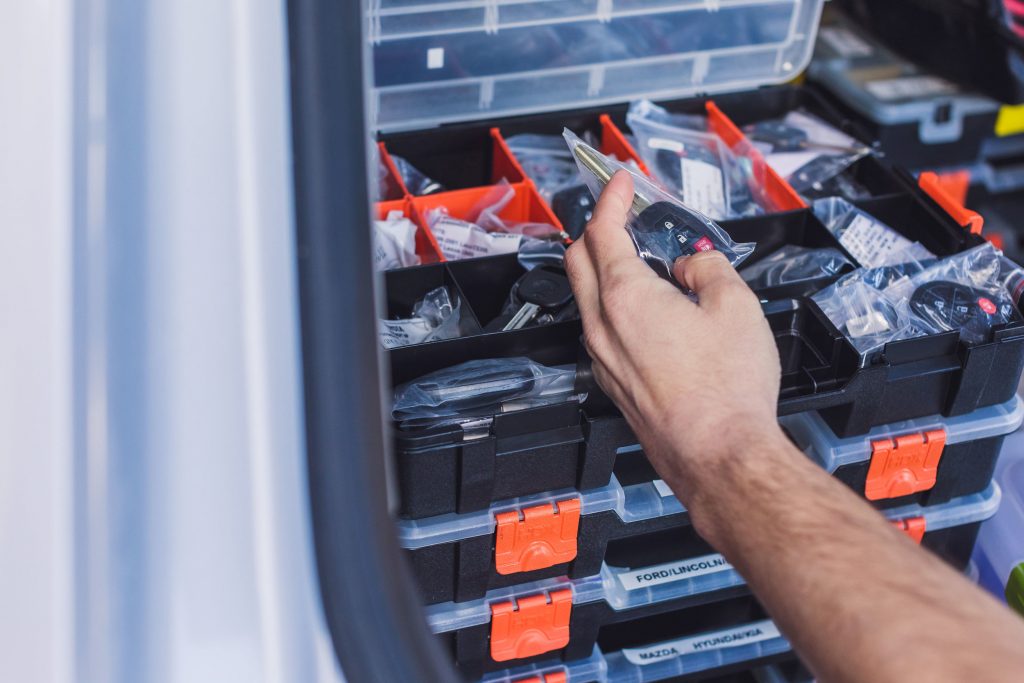
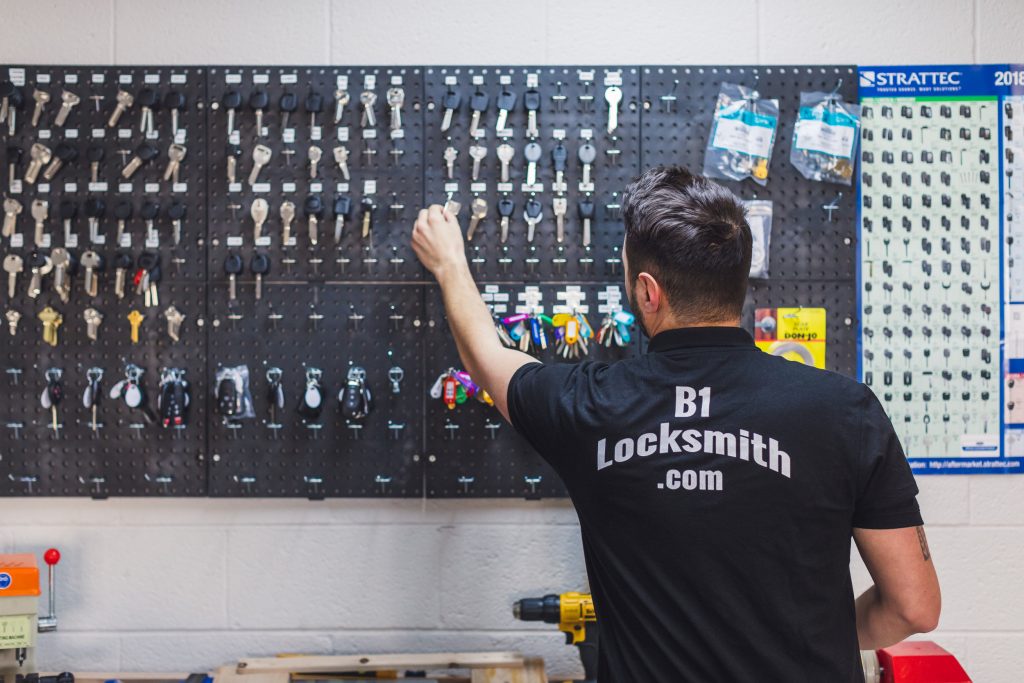
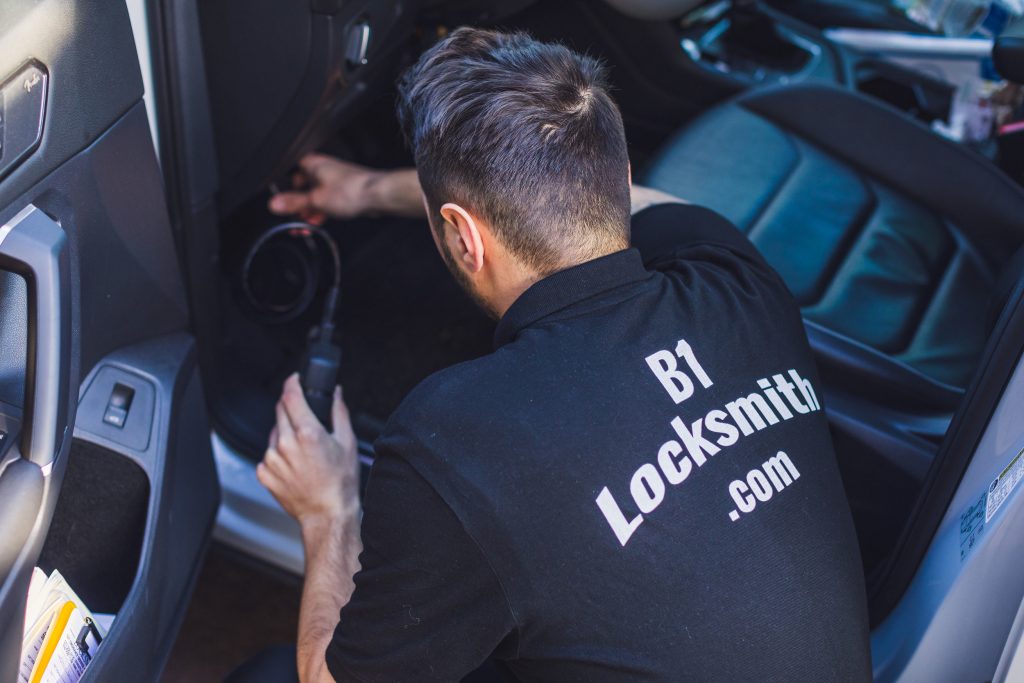
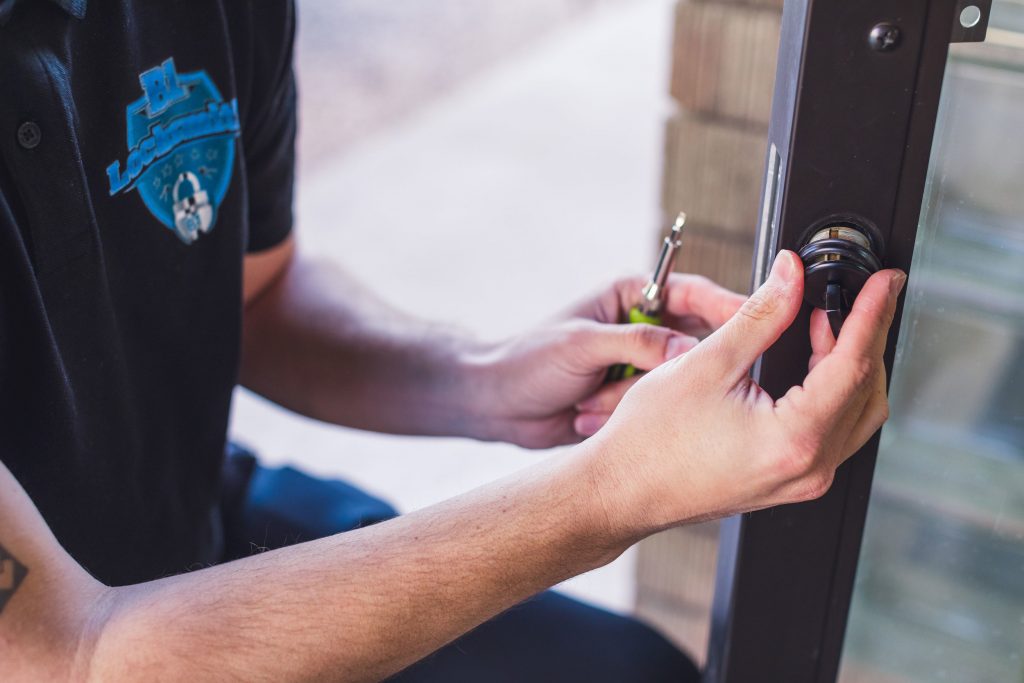
Sunday 7am – 10pm
Monday 7am – 10pm
Tuesday 7am – 10pm
Wednesday 7am – 10pm
Thursday 7am – 10pm
Friday 7am – 3:30pm
Saturday 7:30pm – 10pm
